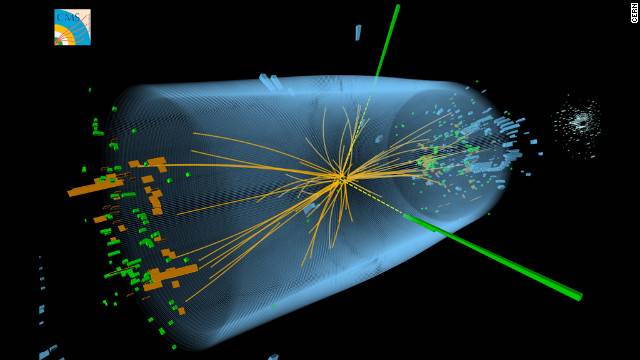Higgs boson confirms reigning physics model yet again
While the elusive particle has reaffirmed the Standard Model of physics, the model still cannot account for dark matter or gravity.
Read more: Higgs Boson Confirms Reigning Physics Model Yet Again
While the elusive particle has reaffirmed the Standard Model of physics, the model still cannot account for dark matter or gravity.
Read more: Higgs Boson Confirms Reigning Physics Model Yet Again


